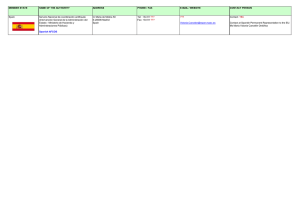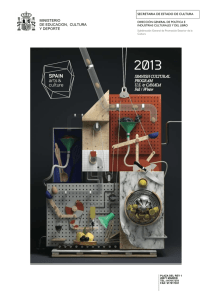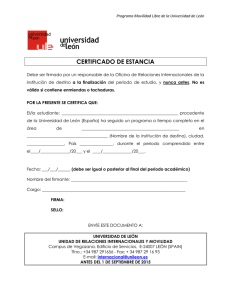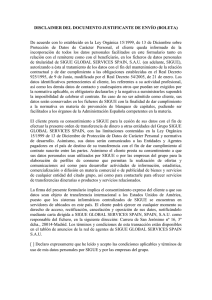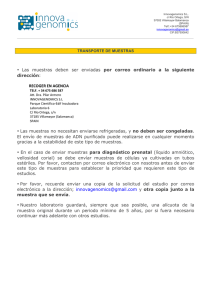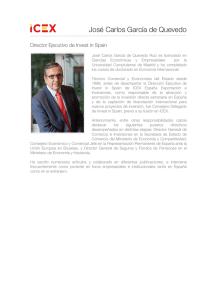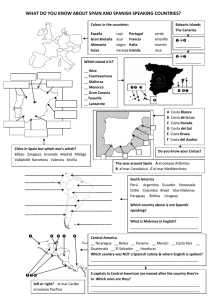GUIDELINES FOR THE PREPARATION OF SYLLABI
Anuncio
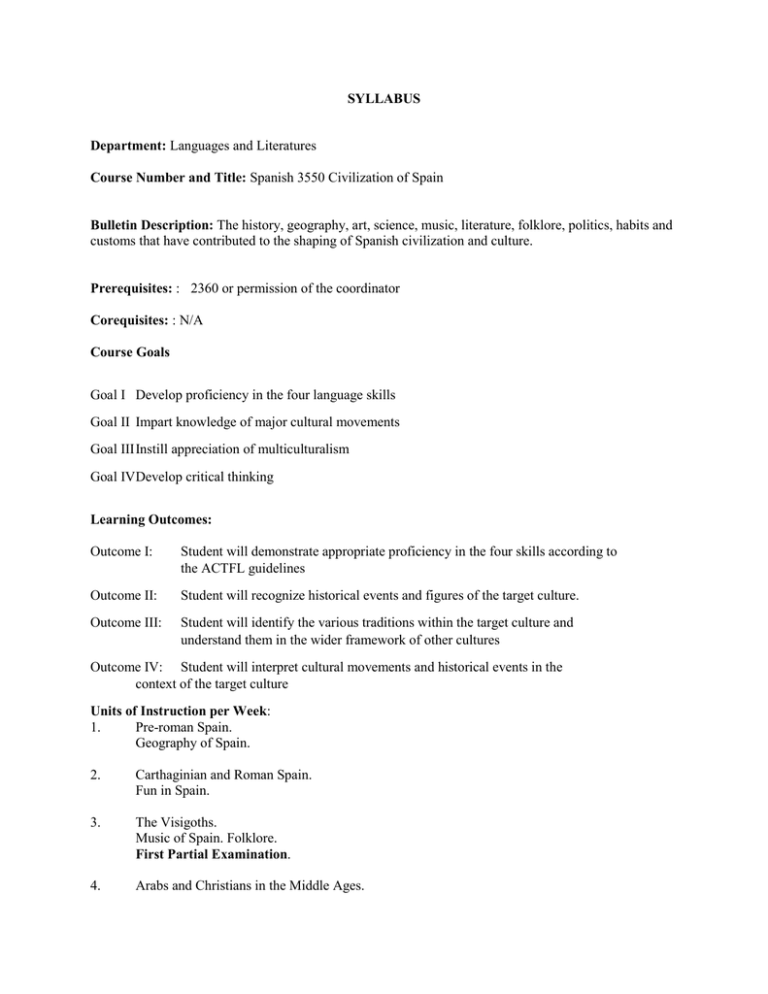
SYLLABUS Department: Languages and Literatures Course Number and Title: Spanish 3550 Civilization of Spain Bulletin Description: The history, geography, art, science, music, literature, folklore, politics, habits and customs that have contributed to the shaping of Spanish civilization and culture. Prerequisites: : 2360 or permission of the coordinator Corequisites: : N/A Course Goals Goal I Develop proficiency in the four language skills Goal II Impart knowledge of major cultural movements Goal III Instill appreciation of multiculturalism Goal IVDevelop critical thinking Learning Outcomes: Outcome I: Student will demonstrate appropriate proficiency in the four skills according to the ACTFL guidelines Outcome II: Student will recognize historical events and figures of the target culture. Outcome III: Student will identify the various traditions within the target culture and understand them in the wider framework of other cultures Outcome IV: Student will interpret cultural movements and historical events in the context of the target culture Units of Instruction per Week: 1. Pre-roman Spain. Geography of Spain. 2. Carthaginian and Roman Spain. Fun in Spain. 3. The Visigoths. Music of Spain. Folklore. First Partial Examination. 4. Arabs and Christians in the Middle Ages. Music. Clasical composers. 5. The Catholic Kings. Spanish Renaissance. Food in Spain. 6. The age of Geographic Discoveries. Way of Life in Spain. 7. 8. Mid semester exam Charles the I and Phillip the II. Spanish Baroque. Art in Spain. El Prado. 9. Last Hapsburgs and Change of Dinasty. Spain is Different. 10. First Borbonic kings until the War of Independence. Third Partial Examination. 11. Spain in North America. 12. The War of Independence against the French, the Cortes of Cadiz and the XIXth century. Independence of Spanish America. Fourth Partial Examination. 13. Final Examination Bibliography: - Altamira, Rafael. Historia de España y de la Civilización española, Barcelona, Crítica, 2001 - Avilés Farré. Juan. La fé que vino de Rusia. La revolución bolchevique y los españoles (1917 – 1931), Madrid, Biblioteca Nueva, 1991 - Blázquez , José María. El Mediterráneo y España en la Antigüedad. Madrid, Anaya, 2003 - Cantarino, Vicente. Civilización y cultura de España, 4 ed. New Jersey: Prentice Hall, 1998. - Gallego, José Andrés, Ed. España siglo XX. Madrid, Actas, 1991 - García-Cortázar Y González Vega: Breve historia de España. Alianza Editorial, Madrid,1994. - Fernández-Shaw, CarlosPresencia española en los Estados Unidos. Madrid: Instituto de Cooperación Iberoamericana, Ed. de Cultura Hispánica. 1987. - Jover Zamora. José María. La civilización española a mediados del siglo XIX, Madrid, Espasa Calpe, 1992 - Kattán-Ibarra, Juan. Perspectivas culturales de España. Lincolnwood, Illinois: National Textbook Co., 1993. - Marcos del Olmo. María Concepción. La II República y la Guerra Civil (1931 – 1939). Madrid, Actas, 2002 - Maza Zorrillas,Elena. La España de Franco (1939 – 1975), Madrid, Actas, 2002 - Olagüe. Ignacio La revolución islámica en occidente. Córoba, Plurabelle, 2004 - Pérez Martín, Inmaculada.Bizancio y la Península Ibérica: de la Antigüedad Tardía a la Edad Moderna. Madrid, CSIC, 2004 - Peláez López José-Vidal. El Estado de las Autonomías: regionalismos y nacionalismos en la historia de España. Madrid, Actas, 2002 - Quesada Marco, Sebastián. Curso de civilización española. Madrid, Sociedad General Española de Librería, 2001 (5ª edición) _ Ugarte, Francisco. España y su civilización, 4th ed . New York: McGraw Hill, Inc., 1992. - Vernet, Juan, y Martínez Martín, Leonor. Al Andalus: el Islam en España, Barcelona, Lunwerg, 1999 - Vilas, Santiago. España: cultura y civilización. New York: Regents Publishing, Company, Inc., 1974. - Vilar, P., Historia de España. Editorial Crítica, Barcelona 1979, 8ª edición. NYSED Requirement: Classroom contact: 45 hours Homework assignments: 90 hours
